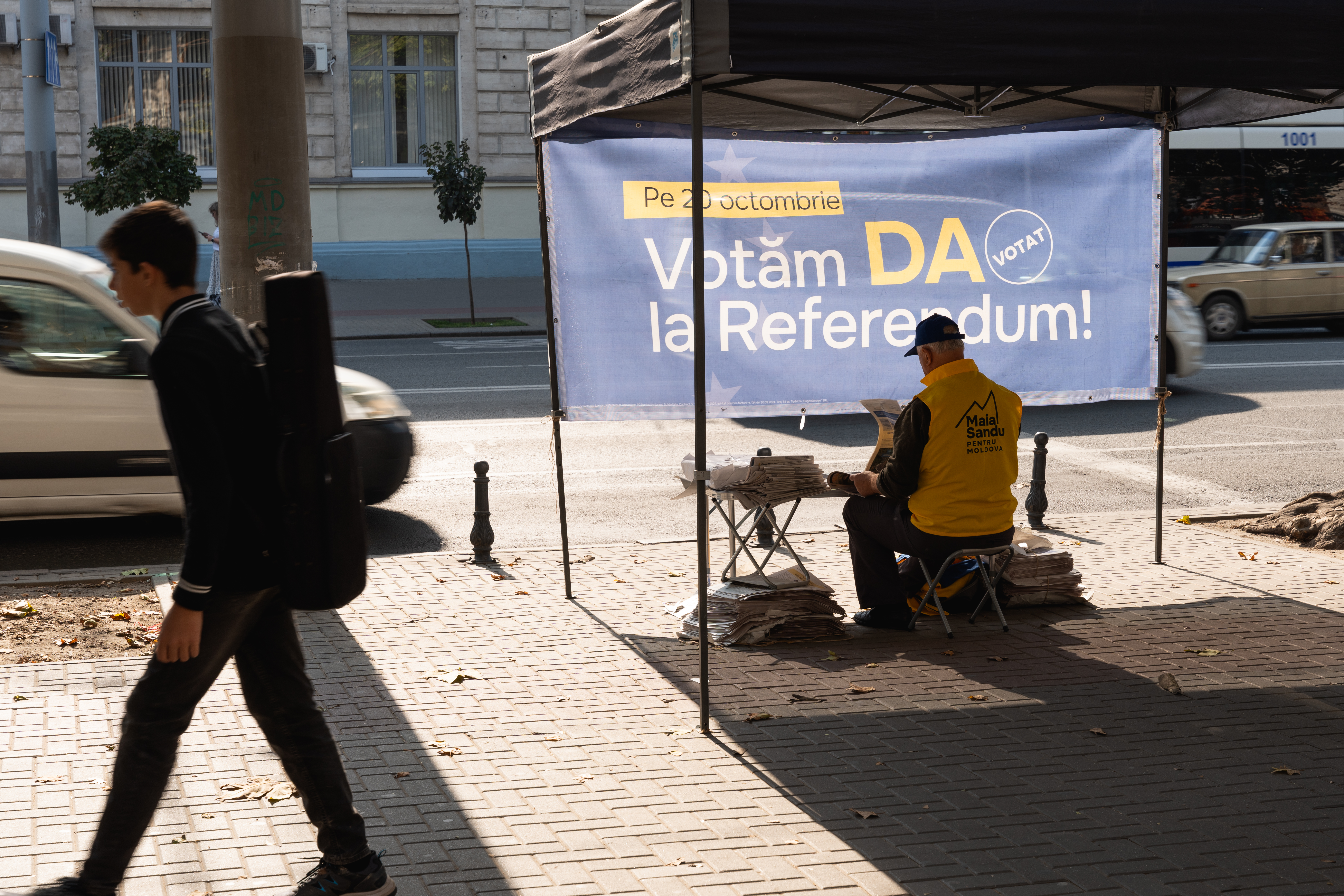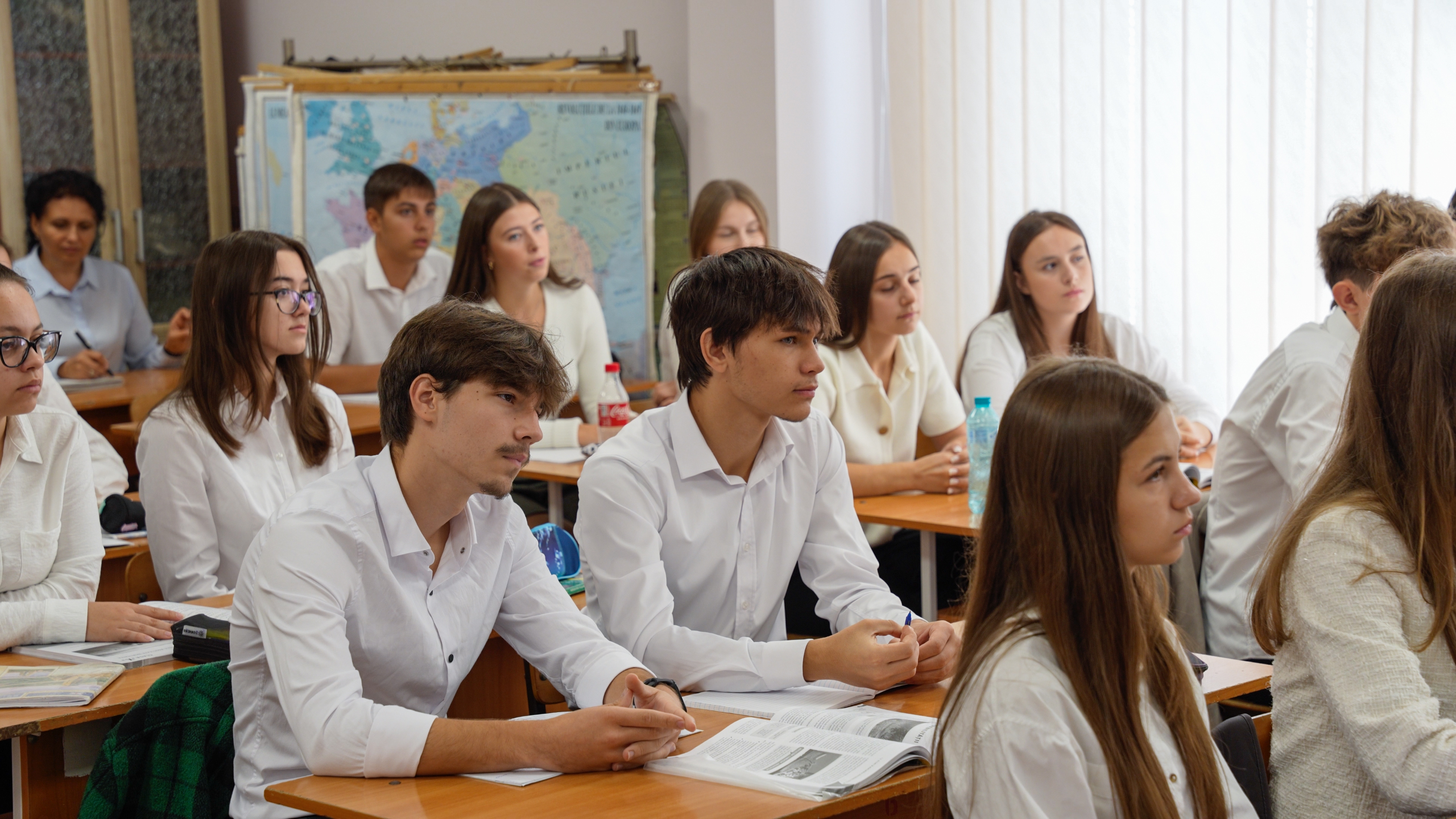
Embezzled funds test Swiss-Moldovan relations

In the year leading up to its referendum on joining the European Union, Moldova received significant financial and diplomatic support from Switzerland. Yet it has taken Swiss authorities four years to confiscate the luxury Geneva villa of oligarch Vladimir Plahotniuc, one of many former politicians suspected of embezzling funds. An analysis of the situation.
On October 20, Moldovans will vote on whether their country should join the European Union. The Moldovan population has ties to both Western Europe and Russia. The stakes are high for this small country, and it could be a decisive turning point.
Amid this uncertainty, Switzerland has positioned itself as an important ally for Chisinau. The two countries have much in common and, for years, Switzerland has made considerable efforts to support Moldova.
However, this commitment is beset by contradictions, particularly when it comes to the confiscation of assets of corrupt former politicians. Authorities in Chisinau had to wait four years before Swiss authorities confiscated the Geneva villa belonging to oligarch Vladimir Plahotniuc. The villa is valued at over CHF30 million ($35 million).

More
Will Moldova vote to join the EU despite Russia’s influence?
Since the Russian invasion of Ukraine in February 2022, the Republic of Moldova has also become the focus of European attention. According to the newspaper Le Temps, Switzerland has redoubled its efforts in the form of diplomatic “hyperactivity”.
In 2024, Switzerland doubled its financial support for the Republic of Moldova to CHF25 million. This decision, confirmed by foreign minister Ignazio Cassis, was just one of many outreach gestures. Within a period of two years, there were no fewer than four official meetings between the two countries. The high point was the state visit of the Moldovan President Maia Sandu in Bern in October 2023. She was received by four members of the government, including then-President Alain Berset.
A Swiss refuge for embezzled funds
However, there is a dark side to this diplomatic honeymoon that casts a shadow over Swiss-Moldovan collaboration. Switzerland’s financial community has long been a refuge for funds embezzled by corrupt former Moldovan politicians. The most symbolic case is that of Vladimir Plahotniuc, a three-term member of parliament and one-time “strong man” of Moldovan politics.

Until 2019, Plahotniuc was seen as the real power player in the country, controlling the government, the parliamentary majority and the judiciary, as well as sustaining a pro-European orientation.
An unexpected alliance between pro-European and pro-Russian powers made it possible to remove him from power. This alliance was united in its opposition to what was perceived as arbitrary power.
Plahotniuc is now on the run and is subject to international sanctions. According to the Swiss government, he has “jeopardised or threatened democracy, the rule of law, stability or security in the Republic of Moldova”.
In a recent exposé, Le Temps reported on a significant development in his case. A ruling of the Federal Criminal Court published on September 24 notes that the luxury villa in Geneva, which officially belongs to Plahotniuc’s wife, has finally been confiscated.

Although this brings the four-year wait for Moldova to an end, it will still take some time for the villa to be sold. Only then will the Moldovan government be able to recover the embezzled funds. At CHF30 million, the villa is worth more than the yearly financial support Switzerland sends to Moldova.
The Swiss foreign ministry describes relations with Moldova as “very good” and increasingly intensive. According to the ministry, Switzerland was one of Moldova’s “most important bilateral donors in 2023”.
Switzerland’s earliest involvement in Moldova was in the health sector, while other areas of activity include economic development and local governance.
Since the beginning of the war in Ukraine, Switzerland has also contributed support for Ukrainian refugees in Moldova. Among other things, Swiss funds are channelled into democracy education, which has been an integral part of school education for the past five years.
Switzerland is therefore among those helping to shape the development of democracy in Moldova.
Vlad Filat’s connections to Switzerland
The discrepancy between the demonstrative diplomatic support for Moldova and the slow progress of the justice system is evident in another case – that of Vlad Filat, a former Moldovan prime minister.

In 2015, Moldova requested Switzerland’s help in an investigation of Filat, who was suspected of receiving around CHF260 million in bribes.
That year an astronomical sum of money disappeared from three Moldovan banks. This became known in Moldova as the ‘Scam of the Century’, and it brought the country to the brink of bankruptcy.
Filat has close ties to Switzerland. His children attended a prestigious school on Lake Geneva and his ex-wife lived near Geneva. Almost ten years after the request for assistance, the legal process has still not led to the seizure and return of the stolen funds to the Republic of Moldova.
Moldovan state lawyers recently filed another request to Switzerland for the return of CHF4.4 million. Valeriu Triboi, a former deputy economics minister, also accused of embezzlement, is alleged to have hidden this money in Switzerland.

Support in fighting corruption
The Swiss foreign ministry defends its efforts to improve legal cooperation with Moldova.
A ministry spokesperson told SWI swissinfo.ch that it “has facilitated consultations between the Moldovan Ministry of Justice and the International Centre for Asset Recovery (ICAR), based in Basel”. He added that “a project to support Moldova’s ability to confiscate and recover illicitly acquired assets is currently being prepared as part of the Swiss cooperation programme”.
Switzerland is aware “that the issues of fighting corruption and confiscating assets are very important for the Moldovan government, and we recognise the government’s efforts in this regard”, the spokesperson added.

More
Schoolkids ready for Moldova’s democracy – with Swiss help
The ministry went on to say that the government is currently “preparing a project aimed at strengthening trust, integrity and compliance between small and medium-sized enterprises and the Moldovan public sector, as well as within these branches”.
Regarding the specific cases of Plahotniuc, Filat and Triboi, the ministry referred SWI swissinfo.ch to the Office of the Attorney General of Switzerland (OAG), which in turn referred SWI to the authorities in Chisinau.
‘Friendly and positive’ bilateral relations
For his part, Vladimir Cuc, the Moldovan ambassador in Geneva, expressed gratitude and optimism.
He told SWI swissinfo.ch that bilateral relations between his country and Switzerland have always been “friendly and positive. After Russia’s unprovoked aggression against Ukraine […] the Swiss authorities have indeed intensified their political and financial support for the Republic of Moldova”.

The ambassador recognises that the issue of repatriating misappropriated assets is an important topic. “We usually raise the issue of asset repatriation at various levels, and I know that it has also been raised at the highest level in the past,” he said.
Despite the extended wait, Cuc considers judicial cooperation to be functioning. “Sometimes we want to see results and feedback more quickly, which is natural for Moldova as an affected party, but we also understand how important it is that all procedures are followed,” he said.
In the run-up to the October 20 referendum, relations between Switzerland and Moldova are also at a crossroads. Not only the outcome of the referendum, but also the way in which Switzerland reacts to it, both diplomatically and legally, could shape the future of relations between these two small countries.
Edited by Benjamin von Wyl. Adapted from German by Sue Brönnimann/gw

More
Our democracy newsletter

In compliance with the JTI standards
More: SWI swissinfo.ch certified by the Journalism Trust Initiative



























You can find an overview of ongoing debates with our journalists here . Please join us!
If you want to start a conversation about a topic raised in this article or want to report factual errors, email us at english@swissinfo.ch.